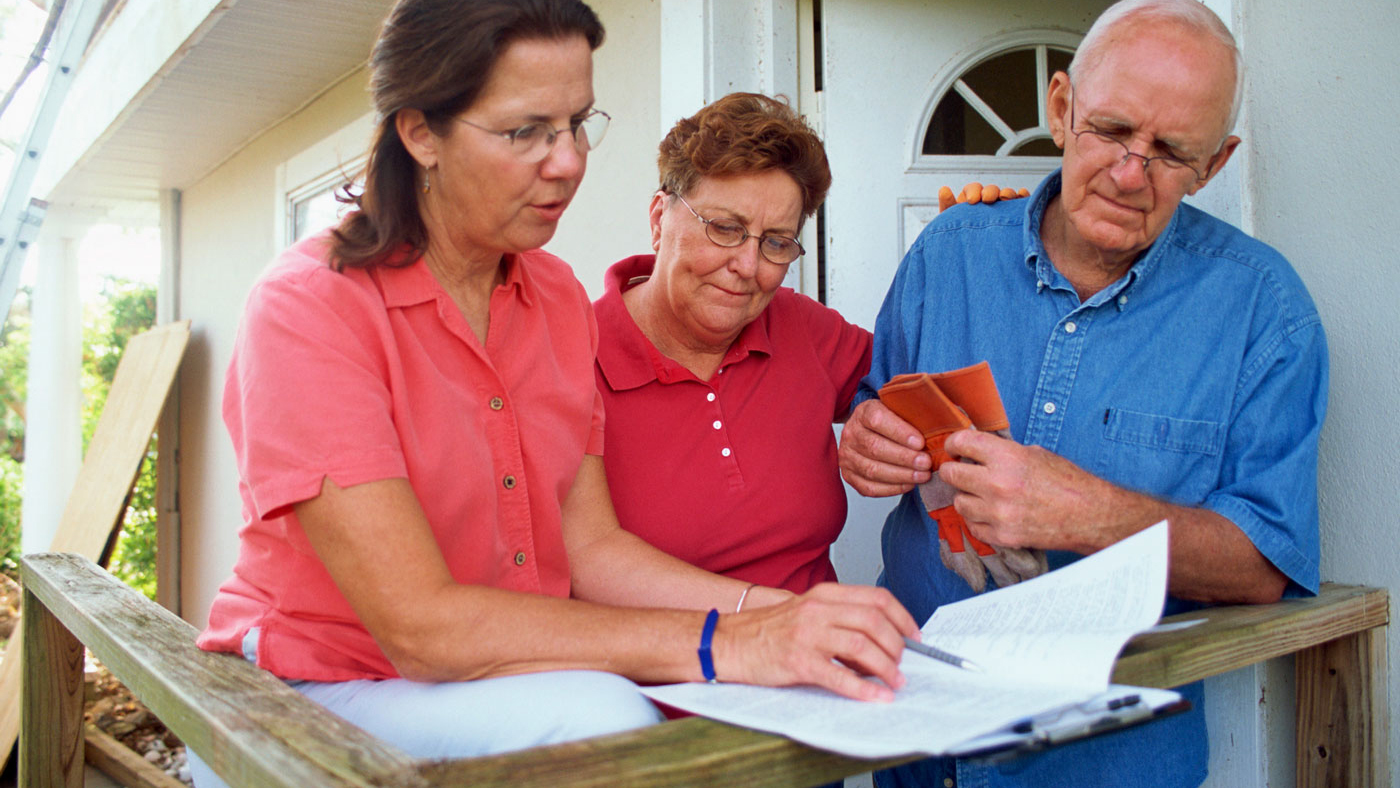Does Homeowners Insurance Cover Hurricane Damage?
After the storm hits is not the time to find out.
 Getty
Getty
Hurricanes and storms can cause catastrophic damage, severe flooding, power outages and massive loss of property, and those left in the storms’ wake face a variety of challenges when they return home to survey the damage. One of the first things you need to do if you are faced with this situation is to contact your agent to file an insurance claim and get the ball rolling on repairs.
What you should know about homeowners insurance before you file a storm-related claim
- Wind-related damage to a house, its roof, its contents and other insured structures on the property is covered under standard homeowner’s insurance policies. Wind-driven rain that causes an opening in the roof or wall and enters through this opening is also covered.
- If your tree falls on your house, your insurance will cover removal of the tree and home repairs due to damage.
- If your tree falls on your neighbor’s house, your neighbor’s homeowner’s policy would provide insurance coverage. The same holds true if your neighbor’s tree falls on your home; you would file a claim with your own insurance company.
- If a tree falls in your yard, but doesn’t hit anything, in most cases you would pay for its removal.
- Additionally, if a tree on your property is weak, damaged or decayed, but you do nothing about it and it crashes down, you could be held liable for any damage it causes.
- Water that seeps into a home from the ground up is considered flooding and would be covered by flood insurance, which is not covered by standard homeowners or renter’s insurance policies. Flood insurance is available to both homeowners and renters, and is provided by the National Flood Insurance Program and a few private insurers. Be aware that there is a 30-day wait before a new flood insurance policy takes effect.
- Homeowners policies may include additional living expenses in the event a home is damaged by a covered peril. This would pay for reasonable expenses incurred by living elsewhere while the home is being fixed or rebuilt.
- Physical damage to a car caused by heavy wind, flooding or fallen tree limbs is covered under the optional comprehensive portion of an auto policy, not homeowners insurance.
What you should know before you file a storm-related auto insurance claim
- Take photographs of any visible damage.
- Contact your insurance company to make a claim and determine what is covered before seeking any repairs.
- Any vehicle sustaining flood damage should be fully inspected before being allowed back on the road. If mechanical components, computer systems, engine, transmission, axles, brake system and fuel system have been impacted by water contamination, it may render the vehicle unfit to drive. In many cases, a vehicle that has sustained significant water damage is determined to be a total loss.